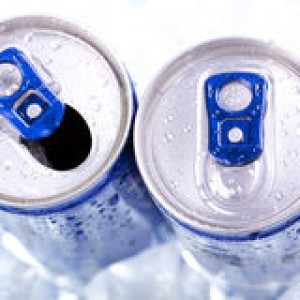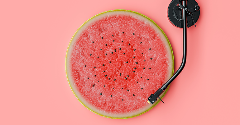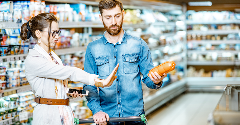News
ABA slams energy drink report
13 Jan 2015In response to a report on energy drinks released by U.S. Senators Markey, Blumenthal and Durbin, the American Beverage Association issued the following statement: “Energy drinks have been enjoyed safely by millions of people around the world for more than 25 years, and in the U.S. for more than 15 years. Energy drinks, their ingredients […]

 In response to a report on energy drinks released by U.S. Senators Markey, Blumenthal and Durbin, the American Beverage Association issued the following statement:
In response to a report on energy drinks released by U.S. Senators Markey, Blumenthal and Durbin, the American Beverage Association issued the following statement:
“Energy drinks have been enjoyed safely by millions of people around the world for more than 25 years, and in the U.S. for more than 15 years. Energy drinks, their ingredients and labelling are regulated by the FDA, and, like most consumer products, their advertising is subject to oversight from the U.S. Federal Trade Commission.
This report ignores crucial data about energy drinks and caffeine consumption in the U.S. Based on the most recent government data reported in the journal Pediatrics, children under 12 have virtually no caffeine consumption from energy drinks. This study’s findings are consistent with an analysis commissioned by FDA and updated in 2012, as well as a published ILSI survey of more than 37,000 people which shows that caffeine consumption in the U.S. has remained stable during the most recent period analysed, while coffee remains the primary source of caffeine in most age groups.
Leading energy drink manufacturers voluntarily go far beyond all federal requirements when it comes to labelling and education. In fact, ABA member companies voluntarily display total caffeine content – from all sources – on their packages along with advisory statements indicating that the product is not recommended for children, pregnant or nursing women and persons sensitive to caffeine. They also have voluntarily pledged not to market these products to children or sell them in K-12 schools. These guidelines and more are noted in the ABA Guidance on the Responsible Labeling and Marketing of Energy Drinks.”
Additional Background:
On Caffeine:
Most mainstream energy drinks contain about half as much caffeine as a similar sized cup of coffeehouse coffee.
Caffeine has been safely consumed, in a variety of foods and beverages, around the world for hundreds of years.
A vast body of available and reliable science supports the safety of caffeine, including at the levels found in mainstream energy drinks.
Related news

Retail landscape lacks nutritious and affordable food, says ATNi
30 Dec 2025
A rapid increase in modern food retail has given retailers growing influence over consumer diets, according to global non-profit ATNi’s latest assessment.
Read more
Debate over ban on ‘meaty’ names for plant-based products reaches stalemate
26 Dec 2025
The debate over a ban on plant-based products using “meaty” terms has reached a stalemate, leaving manufacturers in limbo and still facing overhauls to their marketing and packaging.
Read more
Multi-sensory food and drink products to gain traction in 2026
16 Dec 2025
Trend forecasters predict that sensory elements will play a larger role, helping food and beverage brands differentiate themselves in a competitive market in 2026.
Read more
Big appetite for M&A between European and US food and drink companies
3 Dec 2025
Persistent tariffs on EU food and beverage exports have helped drive record levels of M&A activity between European and US companies this year, according to analysis by ING.
Read more
Non-UPF Program extends certification scheme to entire food industry
30 Nov 2025
The Non-UPF Program has extended its certification scheme to the wider food sector, championing a move towards healthier consumption habits.
Read more
Lancet study links UPFs to chronic disease risk
26 Nov 2025
UPFs are consistently associated with an increased risk of diet-related chronic diseases, according to a comprehensive review of global evidence in The Lancet .
Read more
Concerns swirl around cinnamon’s compliance with EU law
25 Nov 2025
Cinnamon may be a top functional ingredient, but it needs stronger protocols to ensure it meets EU food safety laws and quality standards, say researchers.
Read more
Oat Barista: Innovation for game-changing beverages
20 Nov 2025
Oat Barista is a clean label, sustainable, and innovative drink base specifically designed to create the perfect foam in one single ingredient.
Read more
How younger consumers are redefining ingredient choices and rejecting brand loyalty
18 Nov 2025
Gen Z and millennial consumers’ preferences for transparency, functionality, and purpose are “redefining the very nature of consumption itself”, says SPINS.
Read more
Hybrid formats and flexible positioning to disrupt category norms in 2026
17 Nov 2025
Trend forecasters expect food and drink to move more fluidly across occasions, functions, and formats as consumers seek versatility, novelty, and convenience.
Read more